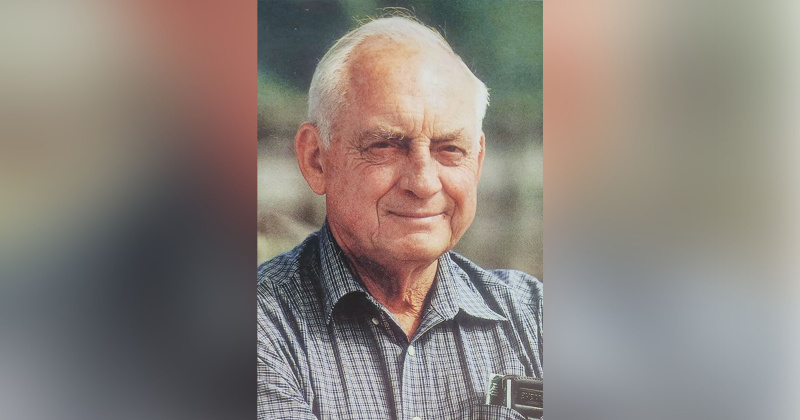Semper Fidelis, meaning “Always Faithful,” serves as the motto of the United States Marine Corps, and a motto by which Dr. Richard C. Harrel lived 88 years of life to its fullest before passing peacefully in his favorite rocking chair in his Beaumont home on Oct. 8.
Those left to cherish Harrel’s memory boarded the Ivory Bill Charter Boat to spread his ashes in the Neches River on Oct. 21, the most fitting final resting place for the beloved environmentalist.
After serving his country during the Korean War and taking full advantage of his GI Bill in Oklahoma, Harrel arrived at Lamar University in 1966, PhD in hand, where he began as assistant professor of biology.
With the support of Beverly, his wife of 65 years, he ascended the academic ranks, taught close to 500 classes and labs, directed the university’s environmental science program, and was repeatedly recognized for his teaching excellence before retiring in December 2013.
Awards aside, Dr. Harrel’s legacy is highlighted by his extensive research and impact as an environmentalist, credited with “helping make the Neches River a living river again,” following more than 40 years of research and work, long before the Clean Water Act and the Clean Air Act began providing direction in cleaning up local waterways.
Harrel distinguished himself as a local and national leader in environmental studies and the monitoring of toxic substances in aquatic environments, namely the Neches River and its associated bayous, creeks, and oxbow lakes.
He began researching and working on the Neches River in 1966 and did so continuously throughout his career.
“I started out when it was in its worst condition, and I’ve been watching the recovery,” said Harrel. “The waterway was dredged, straightened, and deepened. Industry developed along the river, and it became the second most polluted waterway in the state of Texas. And then, as the result of legislation, both state and federal, the river has been recovering for a period of time now.”
For these efforts, Dr. Harrel was awarded the Maxine Johnson Distinguished Service Award from the Big Thicket Association and National Preserve, The Texas Environmental Science Institute Award, and membership in the Neches and Sabine Rivers and Sabine Lake Expert Science Team.
Harrell served the community and local industry with his involvement in countless planning and advocacy groups including Southeast Texas Clean Air and Water Incorporated, of which he was a charter member and served as president for many years.
“My job is to speak for the environment,” Dr. Harrell is cited as stating ahead of his Distinguished Faculty Lecture at LU in October 2003. “This gives me a chance to speak for the river.”
From Dr. Harrel’s classroom, many of his students have gone on to earn doctoral degrees and prestigious positions in education, government, and industry.
“Dr. Harrell had a unique ability to make the most complex idea very understandable by putting it into terms one could easily relate to,” said David Bass, Ph.D. professor of Biology at the University of Central Oklahoma, who earned his Master of Science in Biology under Harrel’s guidance in 1979. “There’s not a day I walk into the classroom that I don’t think of him in some way
“Academics are often criticized because they live in ivory towers, they do research, and it’s circulated among their peers and it generally stops at that point, but not with Richard. He is involved in taking his professional knowledge and applying it in the real world. He walks the talk gets in there and gets his hands dirty.”
Longtime mentor and friend, Biologist Terry Stelly, who currently serves as president of Southeast Texas Clean Air and Water, Inc. credits Harrel for being an asset in his career.
“He was a mentor and good friend to me for many years, and I still visited with him once a month to give him my report,” said Stelly, adding with a laugh: “I’ve been with Clean Air and Water since 1975 when he threatened a whole bunch of us with grade adjustments if we didn’t show up for meetings.”
Kimberly Huch, a local criminal investigator with TCEQ and Harrel’s last graduate student (2008), credits the professor for harnessing her love for protecting the environment.
“He was tough, but I needed that,” she said. “Dr. Harrel was instrumental in my education, and I am where I am professionally because of him. He was so animated and charismatic about aquatic biology and knew how to catch anyone’s attention even with what could be a very dulling subject.”
Dr. Harrel established his reputation as a scholar by securing 18 externally funded research grants, publishing 45 referred articles, and directing 37 environmental science graduate students, and was selected by his colleagues to receive the 2000 University Scholar Award and subsequently designated and honored by the Board of Regents of The Texas State University System and President of Lamar University as Distinguished Professor emeritus of Biology.
Over the years, Harrel received many honors including the University Scholar Award in recognition of a lifetime of outstanding scholarly and creative achievements, served as Distinguished Faculty Lecturer, Professorship for Life Medal for teaching, Lamar’s most prestigious academic honor, subsequently joining an elite group of only four of Lamar faculty members to ever earn the “Triple Crown,” all three of the university’s top three faculty honors.
For more than four decades, Harrel brought about change and progress in improving local water quality in a time prior to federal or state regulations, all while doing the same for his wife and three children. Dr. Harrel’s legacy continues through the work of his students who lovingly refer to him as mentor and friend, a reflection of his commitment to change and progress and true to the motto “Semper Fidelis,” always faithful.
Those wishing to continue Dr. Harrel’s legacy may do so by contributing to the Dr. Richard C. Harrel Endowed Scholarship fund with direct contributions to the Lamar University Foundation.


